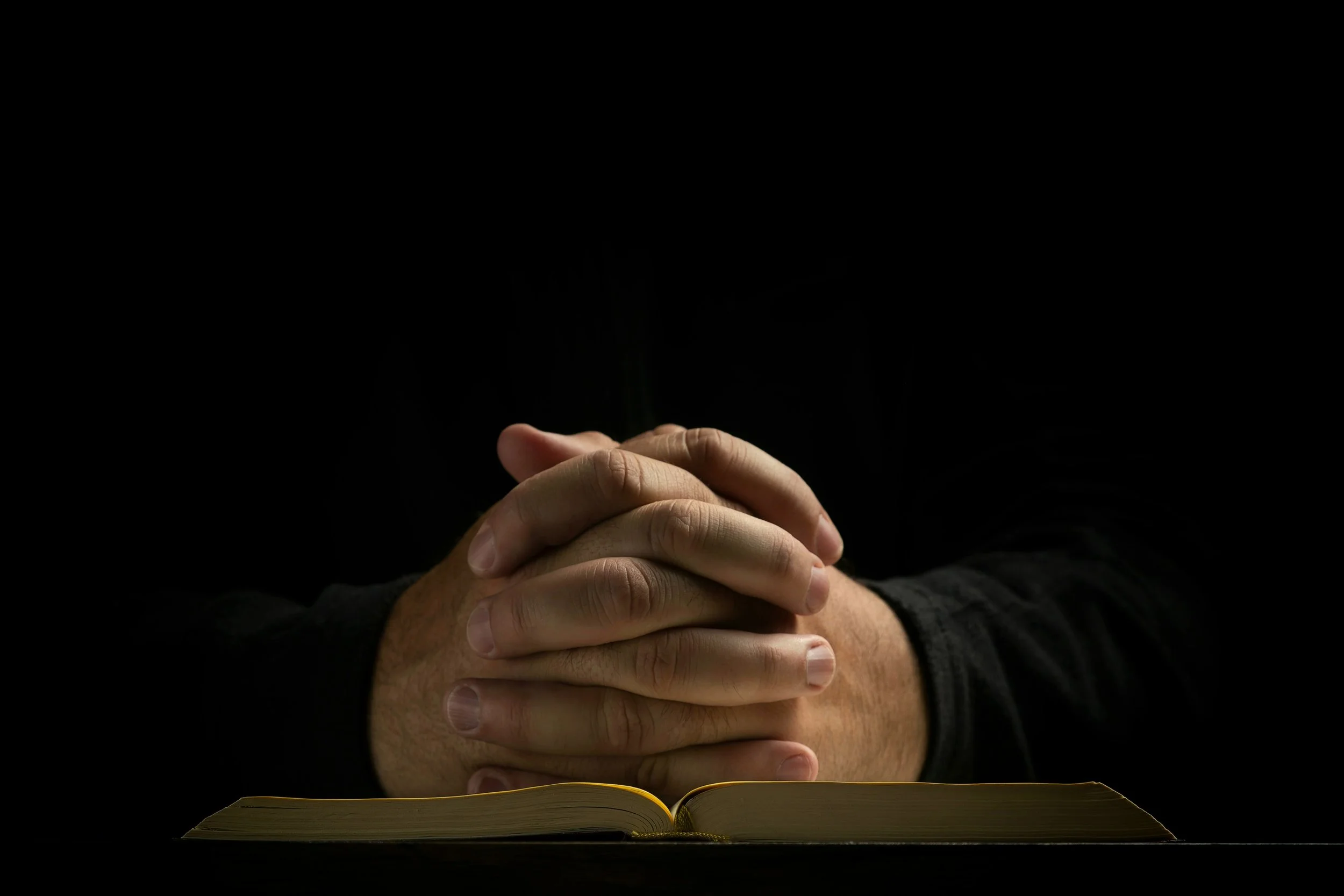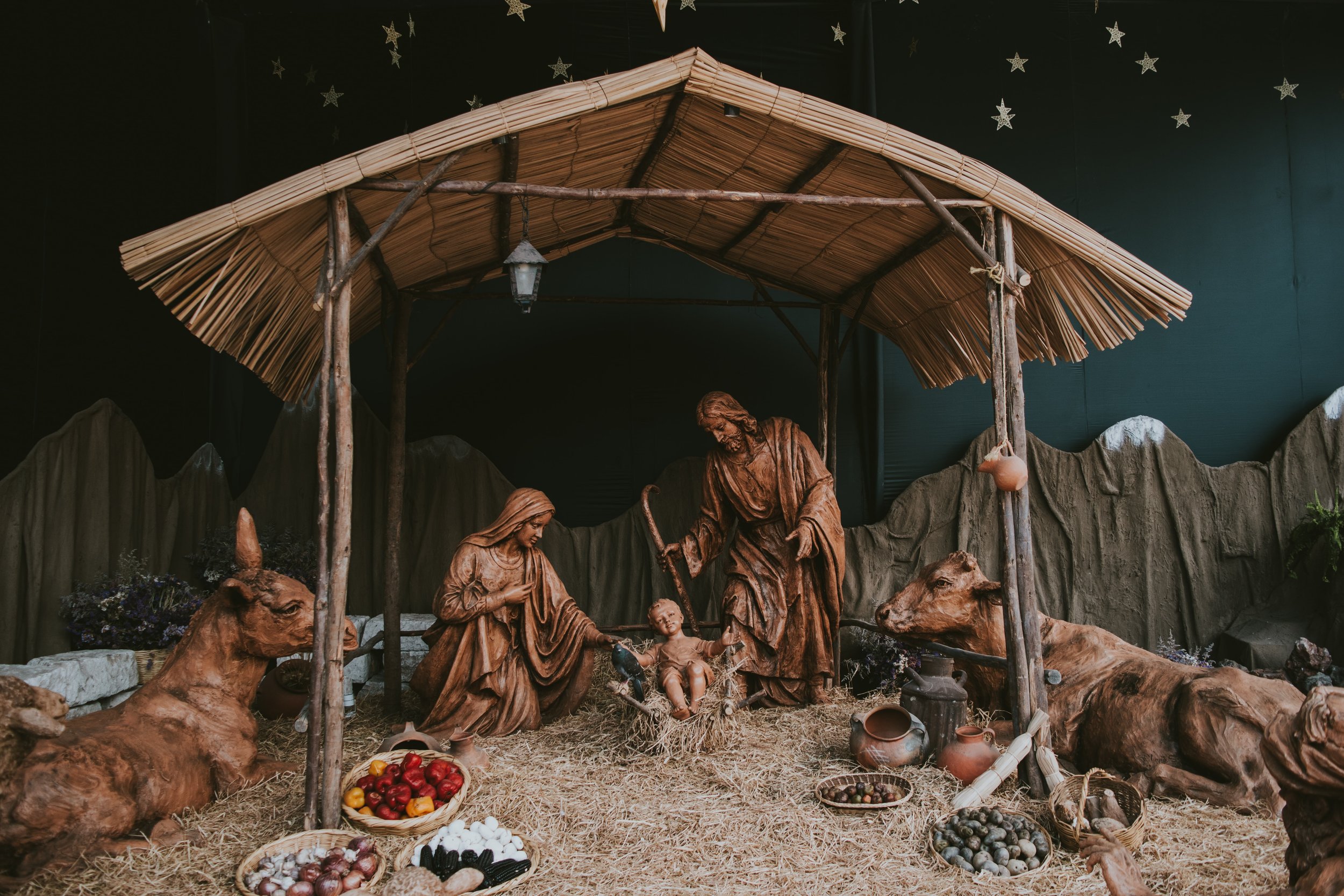Like all real and good things that take practice, prayer doesn’t always come easily. In fact, as we grow in prayer, we can expect to have seasons where it is downright difficult to pray. There are a lot of reasons for this. When the newness of a habit begins to wear off and we settle into a pattern, we begin to experience new challenges to our disciplines of prayer. It is important for us to remember that difficulties in prayer are not necessarily a sign we are doing something wrong. In fact, experiencing difficulty in prayer can be a sign that we are doing exactly what we need to do. Here are some of the common difficulties that face a person who is learning to pray.
Read MoreForgiveness is the first shape salvation takes in our lives. Through confession we experience forgiveness from God and are initiated into the ministry of reconciliation. We are then sent out to practice this ministry, first in the Church and then in the world. I say ‘practice’ here to cut against the notion that forgiveness is something at which we are immediately skilled. Forgiveness is a journey, the steps of which sometimes take months or years each. But forgiveness is real and it can bring us freedom from the power of our wounds. For this to happen, though, we have to get real about those hurts we would most like to avoid. Forgiveness begins where we really need to forgive, or it does not begin at all.
Read MoreIn the past, I’ve written that healthy shame will turn toxic unless acted upon and held in health by a power beyond itself. Individuals and communities—including churches—will repeat cycles of toxic shame until someone intervenes. I have seen in pastoral conversations many attempts to ‘manage’ the voice of shame by negating it. We do this either through ignoring it or by trying to persuade ourselves that shame can tell us nothing and is merely a figment of a general atmospheric moralism. But no matter how boldly we shout I am not ashamed! we still are.
Read MoreThis post is about a way to approach contemplative prayer. I freely admit from the outset that I am no master of this art of ultimate trust in God’s love for me. Almost twenty years into my journey as an Anglican and over thirty into my life as a Christian, I am still unlearning the engrained habits of self-sufficiency.
Read MoreThis Lent, I am revisiting Martin Laird's remarkable little book, Into the Silent Land, as an aid to my contemplative prayer practice. For me—and I imagine I speak for many who have gone through St. Matthew's Pastoral Ministry class—Into the Silent Land was my first introduction to the Christian tradition of contemplative prayer.
Read MoreBe quiet and listen. What do you hear? Do you hear an aircraft overhead? Vehicles in the street outside? The air conditioning? Can you hear the compressor on the refrigerator? The fan of the computer? Most of the time these sounds fade into the background, but it’s amazing how acute one’s hearing gets when you sit down and attempt to pray. Especially when you attempt Contemplative Prayer.
Read MoreEASTER, the Day of the Resurrection, is the most important celebration of the Church. From the beginning, the Church observed a period of fasting before Easter to prepare for the feast. This season of fasting was lengthened to forty days to correspond to the forty day fasts in the Bible: The fast of Jesus in the wilderness before he was tempted by the devil (Matt. 4:1), the fast of Moses on Mt. Sinai while he was receiving the Ten Commandments (Exodus 34:28), and the fast of Elijah when he fled from Jezebel (1 Kings 19:8).
Read MoreThe beginning of the 18th Century saw a dramatic decrease in religious fervor, though not necessarily in religious discipline or witness. The post-reformation period saw a community attempting to maintain a witness in a world that was seeing the growth of rational thought and scientific discourse. In terms of the Church, several important events took place.
Read MoreAs we turn in this series to address my own tradition of Anglicanism and the major tendencies within it, we have to start by acknowledging that much of what makes Anglicans who they are arises out of the history of the place where they learned to pray.
Read MoreI remember walking into the Dormition Cathedral in the town center of Vladimir, just east of Moscow, now almost twenty years ago. My first impression was how warm it was as I walked in through the door into the vestibule. As I was accustomed to the temperate winters of Southern California, the Russian cold was living up to its reputation.
Read MoreWhat Anglicans think about other ecclesial traditions is frequently asked in our Inquirers’ Class each year and in pastoral correspondence with visitors. In this post, we will start with the common question concerning our relationship with the Roman Catholic Church.
Read MoreHappy Epiphanytide to all! In the season of Epiphany, we commemorate and celebrate the manifestation of Jesus Christ to the Gentiles, when salvation was opened to all mankind. As the collect states, we now know Christ through faith because of his Epiphany: put in the immortal words of our beloved late Fr. David Brounstein, “It’s [our] big day!”
Read MoreWhen the Wise Men are called to seek the Christ Child, they are drawn forth in a strange way: by an unusually bright star, shining in the heavens. In Matthew 2 we are told, “Now after Jesus was born in Bethlehem of Judea in the days of Herod the king, behold, wise men from the East came to Jerusalem, saying, ‘Where is He who has been born King of the Jews? For we have seen his star in the East and have come to worship him.’” We rarely pause to acknowledge how odd this story is.
Read MoreThe terms of this satisfaction emerge in dire tones as Anselm’s treatise turns, in its second part, to his revelation of God’s salvation offered through Christ the God-man.
Read MoreMartin Thornton said of St. Anselm of Canterbury that he “occupies a place in English spirituality not unlike that of Chaucer in English letters. He is the father-founder who first brought all the essential elements together, who gave the school its clear character and stamp. In Anselm, English spiritual theology is embodied and potentially formed; formed as a young man who still needs to mature but who is no longer a child” (English Spirituality, 156). Anselm was a Benedictine monk who occupied the Archbishopric of Canterbury during the tumultuous period following the Norman Conquest at the end of the 11th Century. Like many in the English school of Catholic theology, his writings were imaginative if not always precise.
Read MoreIt was the first funeral that I remember attending. It was for a boy my age, and I was a young boy. I can recall the commemorative photo of him on display and thinking, ‘I look like him.’ Unlike many funerals I’ve since attended, the body of the departed was present with us, and the casket was open so that everyone present could process forward and say goodbye. It all seemed like it could barely be real.
Read MoreWhen people ask what my favorite movie is, I always answer that I have two favorites, one of which is Home Alone. Some people think it’s kind of weird to have a Christmas movie as one of my absolute favorites, but I think it’s the best; I will watch it several times during this season. And the more I watch it, the more I see how this movie thoughtfully compares an Advent that is defined by overindulgence and materialism with an Advent characterized by penitence and reconciliation.
Read MoreAll week, I have been haunted by a “Monday in Holy Week” journal entry from The Duty of Delight, a collection of Dorothy Day’s journals. Day’s sundry list of “unnecessary things” calls to mind, for me, exactly what I am so resistant to giving up each time Advent and Lent return: cigarettes, candy, liquor, movies, radio, newspapers. For each of us, the list is different—mine might be something like chocolate, social media, music, podcasts, coffee—but all of us have a list of unnecessary things to which we are unduly attached. And all of these lists signal the same impulse to find hope (or rest, peace, joy, forgetfulness, pleasure, healing, etc.) in something that is not God.
Read MoreAnglican Catholics are defined by a prayerful encounter with the Scriptures in conscious dialogue with the Church and her saints. To read the Scriptures as an Anglican Catholic means to be fully and robustly Anglican—to grow into the maturity of the Church’s threefold Rule of Mass, Office, and Personal Devotion—and to be fully and robustly Catholic—anchored to the Faith once delivered to the saints and confessed everywhere, always, by all, in the undivided Church through the ages.
Read MoreIn Part 1 of this mini-series, we discussed how our reading of Scripture always takes place within a reading tradition. We may be conscious or unconscious of that tradition, but it will influence us in either case. Anglican Catholics read the Scriptures in interaction with the tradition of the ancient Church and what became the Christian West. In the last post, we explored how the New Testament itself bears witness to a tradition of reading the Scriptures as fulfilled in the Person of Jesus Christ, through whom the Scriptures are read as either anticipation or remembrance. As we turn now to the Middle Ages and beyond, we will look at how a unique spirituality emerged in the English Catholic Church, which became, in its time, the patrimony of the Anglican Catholic expression of the Christian life and its approach to the Scriptures.
Read More



















